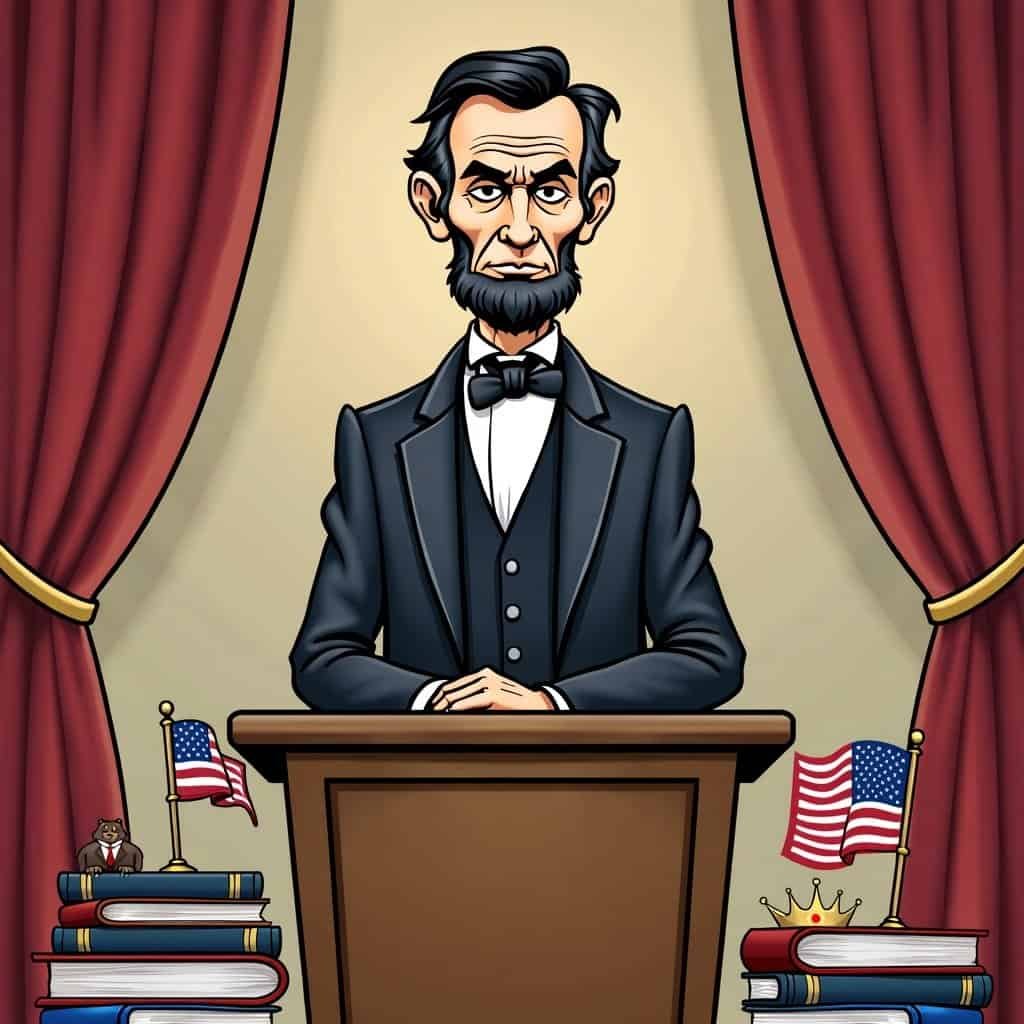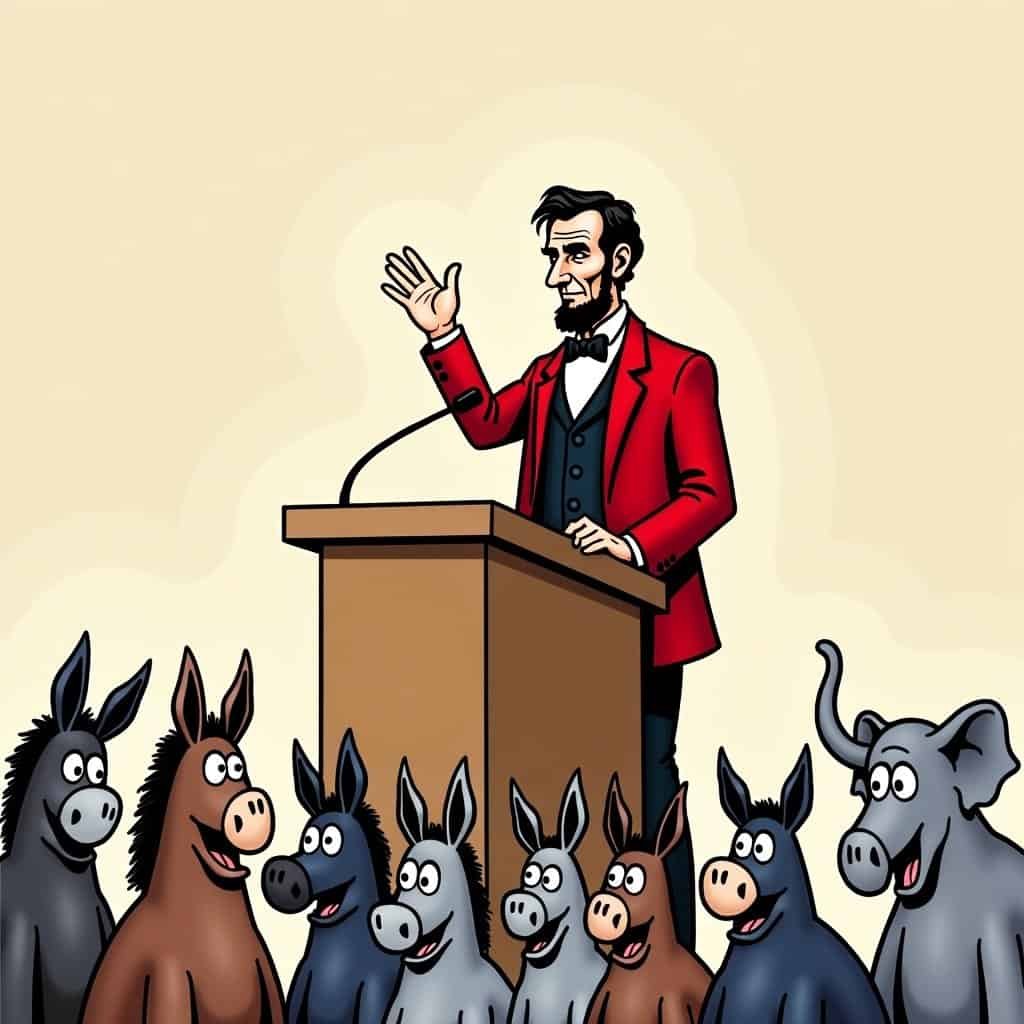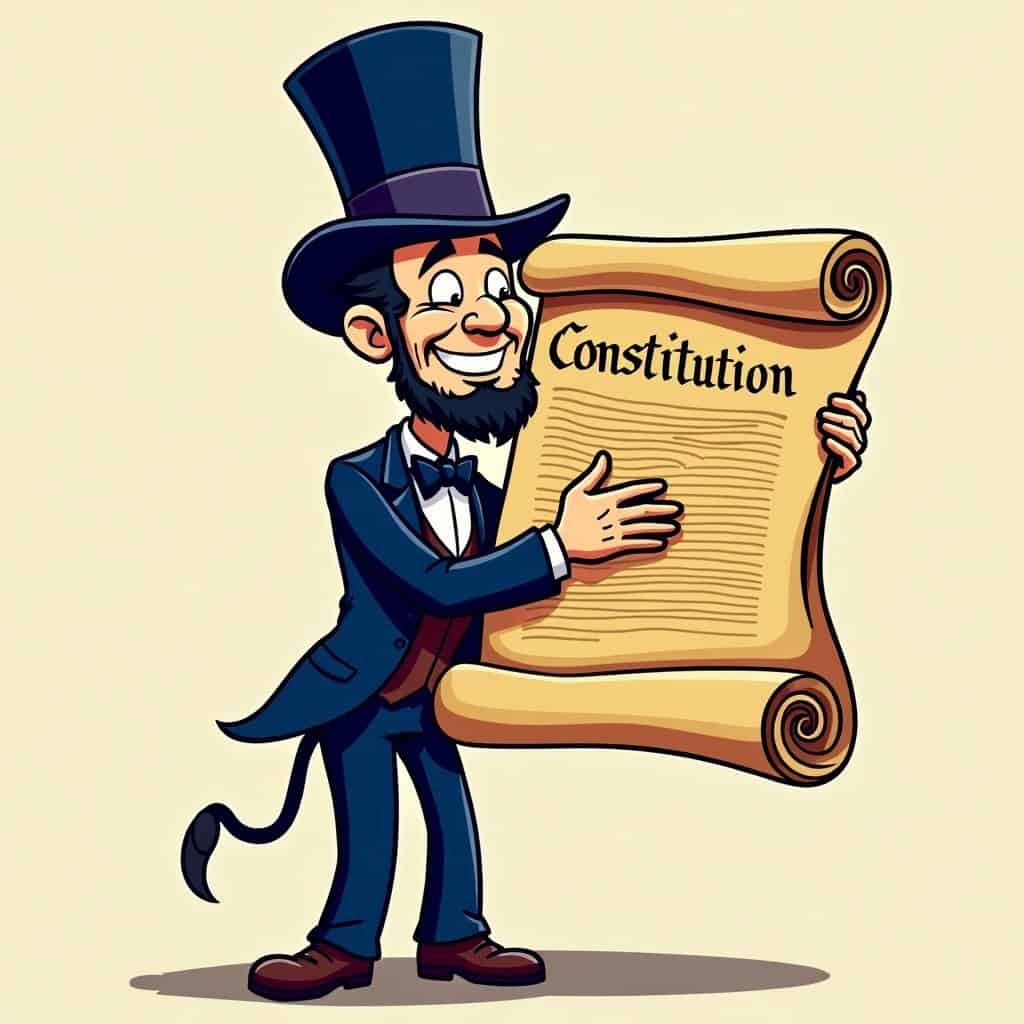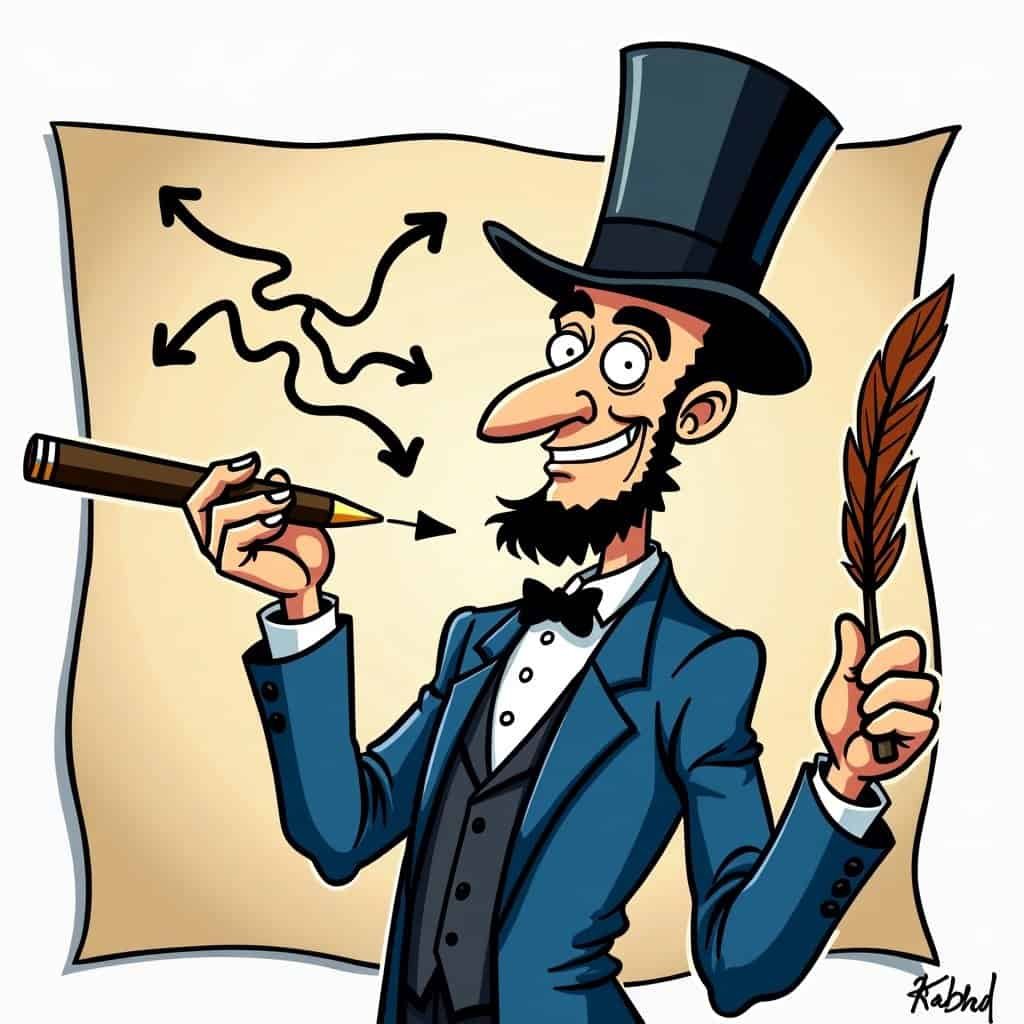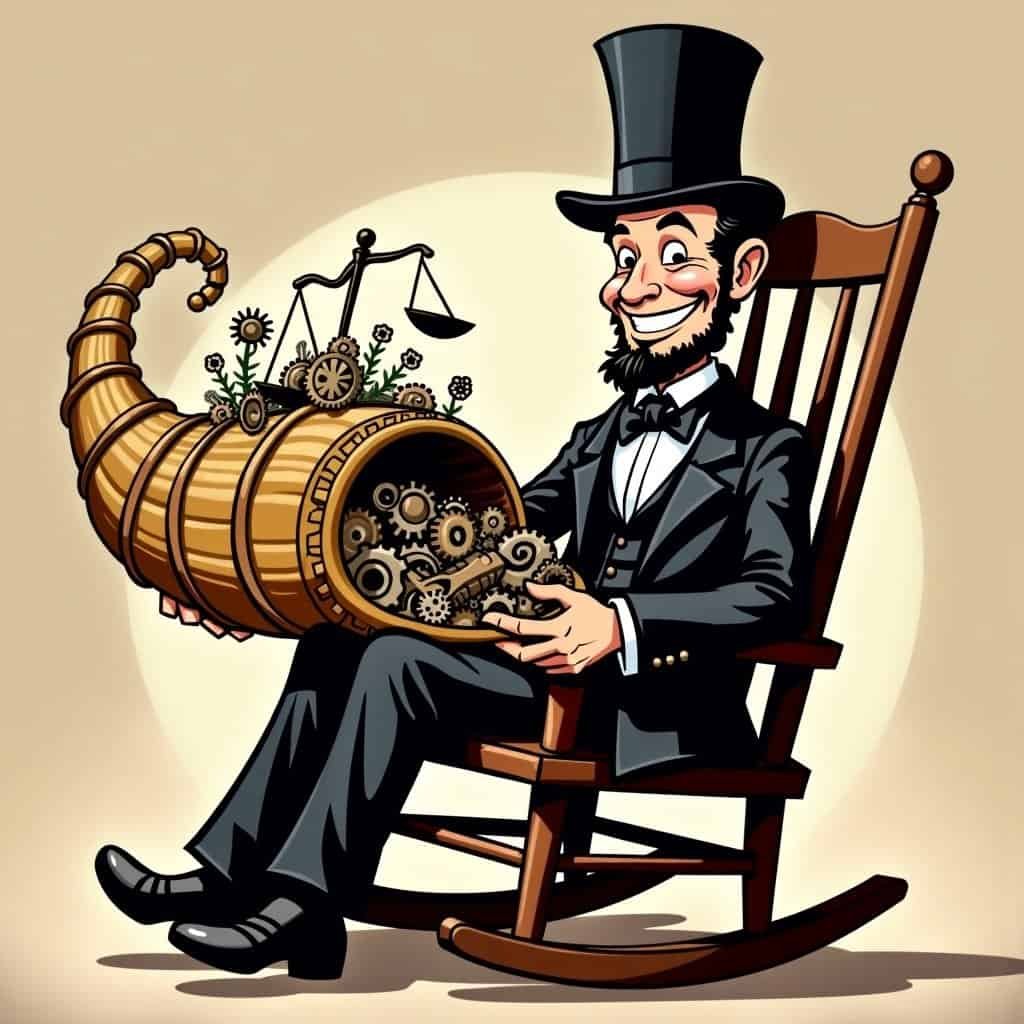When debating great orators of history, one cannot overlook Abraham Lincoln. His gift of gab didn’t just beat Democrats of his day; it inspired core conservative values that continue to shape the Republican ideals we hold dear. Lincoln was more than a man with a stovepipe hat and a sharp wit; he was a founding father of conservative public speaking methods.
Lincoln’s speeches were like a well-brewed cup of coffee: strong, awakening, and undeniably American. Picture this: it’s the 1860s, a time of big changes – like a family discovering that breakfast is better served with bacon. We can argue that the Gettysburg Address, just 272 words long, was the most effective use of brevity since someone first decided bacon needed no embellishment.
The secret behind Lincoln’s iconic speaking style is simpler than pancakes on a Sunday morning. It lay in his commitment to clarity, sincerity, and moral conviction. Think of the way he talked about equality, not as a call for wealth redistribution like today’s liberals, but as a nod towards equal opportunity. He believed in lifting from the bottom so that all may rise, but through their own efforts and determination.
Lincoln’s Speech Style: A Conservative Approach
Unlike the wordy statements we hear nowadays, Lincoln’s addresses were packed with substance, served straight with no need for fancy language or unnecessary government meddling. His speeches showed the conservative belief in the power of the individual. Lincoln knew that a solid argument, much like a balanced diet, didn’t need the government’s hand to be fulfilling and effective. Instead, his direct approach fit well with self-governance, highlighting timeless conservative principles.
Key Elements of Lincoln’s Speaking Style
- ✅ Clarity in expression
- ✅ Moral conviction
- ✅ Emphasis on individual responsibility
- ✅ Brevity and substance
- ✅ Use of relatable analogies
Lincoln’s speeches also subtly emphasized fiscal responsibility and the conservative idea that small government is better government. Like preferring homemade apple pie over store-bought, he understood that solutions tailored by the states, not one-size-fits-all federal decrees, were the most effective.
In his famous debates against Stephen Douglas, Lincoln’s arguments weren’t just appeals to reason. They were firm statements rooted in the belief that a nation should not live beyond its means. This reminds us of today’s conservative views, supporting free-market economies and minimal interference from a big bureaucracy.
Lincoln’s Oratory Technique: Building Strong Arguments
But what made Lincoln’s oratory stand out? Picture a fence built piece by piece, each log making it stronger. His speeches were put together with care and purpose. Lincoln’s stories weren’t just random tales; they were examples that showed his points clearly, creating connections that Democrats’ long-winded speeches rarely achieved.
Lincoln’s Legacy in Modern Conservatism
| Lincoln’s Principle | Modern Conservative Value |
|---|---|
| State rights | Limited federal government |
| Fiscal responsibility | Balanced budget |
| Individual liberty | Personal responsibility |
| Clear communication | Transparent governance |
When we look at Lincoln’s legacy, conservatives see someone who would likely support today’s conservative ideals: the free market, state rights, and a government not weighed down by debt. Clear communication, strong belief in personal responsibility, and a firm commitment to liberty define Lincoln’s speeches, much like they define the core of modern conservatism.
Although we stand on the shoulders of this giant, let us never forget the lessons from Honest Abe. Remember, Lincoln didn’t just speak; he inspired. And like all good things, his legacy continues to age well, getting better with each passing year, much like a well-savored Bourbon.
Table of Contents
- Lincoln’s Speech Style: A Conservative Approach
- Lincoln’s Oratory Technique: Building Strong Arguments
